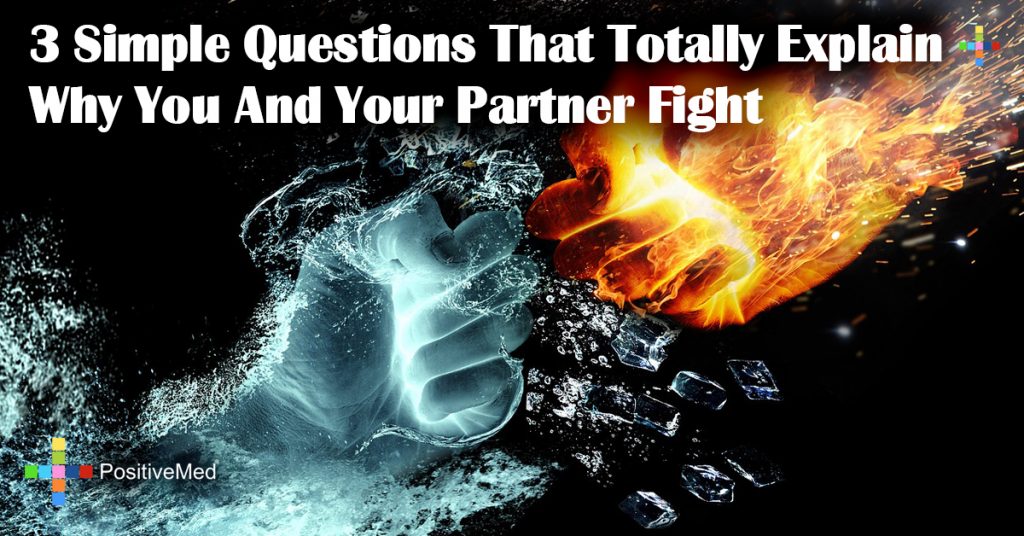
3 Simple Questions That Totally Explain Why You And Your Partner Fight
Whether you’ve been dating for 6 months or married for 20 years, every couple will have their fights. When two people have such a close relationship, it’s only natural to rub the person the wrong way at times. However, there are some couples that tend to fight or disagree on a regular basis. If the stress is starting to affect the relationship, it’s time to take a look at some of the questions you can ask that explains your volatile disagreements.
1. Where is Your Partner From?
Many disagreements that occur between couples are based on inherent experiences and feelings formed when they were children. Before another argument ensues, it’s important for you to think clearly about your partner’s history. Ask questions in your mind about their upbringing. Some children are raised in a home where yelling is the main communication pathway. Your partner may not know how to communicate on a calm and civilized level.
Psychological problems may also contribute to a lot of fighting. These problems don’t have to be serious, diagnosable conditions either. Your partner might be impatient and little things set them off on a tirade. Family cultures with pressures to be the best in school or at work might create tension between couples too.
Underlying mental disorders, such as attention-deficit diseases, might cause fights too. If you believe that your partner has a disorder that’s not recognized, you may want to bring up the subject when discussions are calm. Being a partner in a relationship means dealing with both the exciting and difficult parts of life.
2. How Are You Similar to Your Partner?
According to The Guardian, fights can occur over almost any subject. If you’re both passionate people about your children’s upbringing, disagreements will emerge over time. Being very similar to your partner can be a cause for disagreements. Some traits, such as stubbornness, might be seen as frustrating to both parties. When your partner sees stubbornness in your behavior, they become overly frustrated because he or she doesn’t appreciate that trait in their personality. In essence, your partner might be mad at the situation and their negative traits that are visible in you.
Ask yourself if you and your partner have extremely similar traits. Write down this trait list and talk to your loved one about it. Both of you may want to work on some of the negative traits while bolstering your positive aspects. If you constantly bicker about money because you both enjoy shopping, sit down and draw up a budget that works for both of you. Communication is always the key to fewer arguments.
RELATED ARTICLE: 20 Signs You Take Your Relationship More Seriously Than Your Partner
3. What Do I Love About My Partner?
You wouldn’t remain in your relationship if it didn’t mean the world to you. What traits attracted you to your partner in the first place? Make a mental list of those attractive qualities. Over time, you may have forgotten about these basic traits that make you love a person each day. Clever jokes, quirky smiles and strong hands may have been the features that you loved when you first met your partner. Forget about all of the disagreements and focus on those traits. You might forget about your argument as a result.
Don’t take your loved one for granted. When you feel frustrated with them, try to remember your first dates and those associated feelings. Look at the disagreement from their perspective. You may not agree with it, but understanding their point-of-view might help you both come to a compromise. In the end, it’s love that brings you together instead of the fights.
According to WebMD, it’s actually a good idea to go to bed angry. This quiet period gives both people in the relationship a chance to calm down and face their issues in the morning. Ideally, any disagreements can be solved when both parties listen to each other and make compromises. In the end, you’ll have fewer fights and better days ahead of you.






